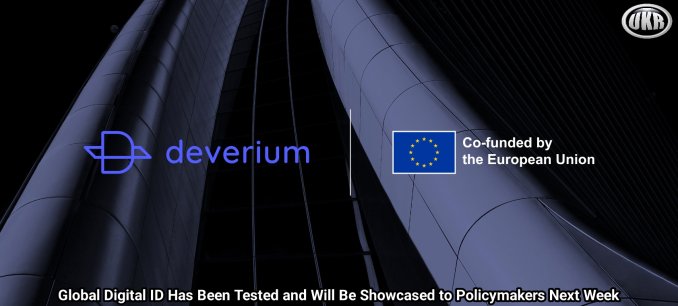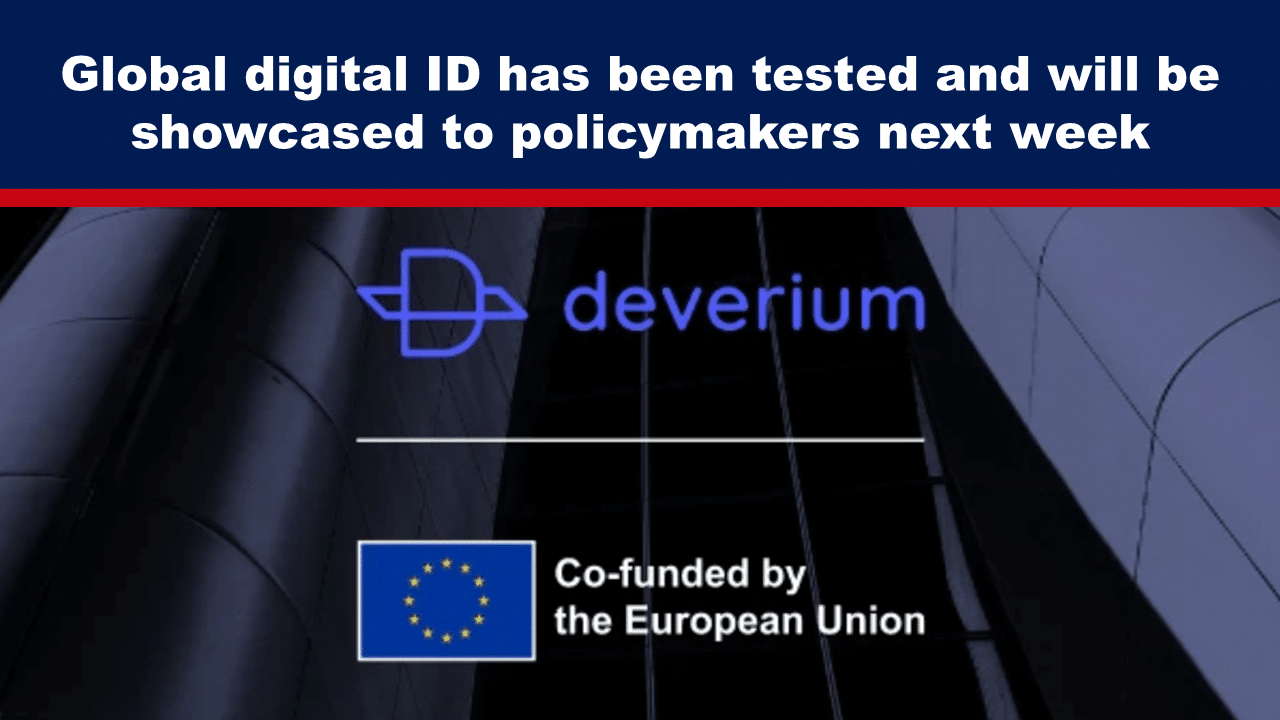
Global digital ID has been tested and will be showcased to policymakers next week
RHODA WILSON
AlongID is a cross-border digital identity platform developed by international software company Deverium. The platform is currently in its early validation phase and will be showcased next week at GITEX Global, the world’s largest technology and AI exhibition, targeting policymakers and investors.
AlongID is a global digital ID.
Deverium (stylised as “deverium”) is a global software development company founded in 2019 by Erika Maslauskaite, Edvardas Maslauskas and Darius Liubinas. It is a privately held company registered in Lithuania with offices in Lithuania, the United Kingdom and Sweden.
The company is known for its work in digital transformation, with flagship projects including a cross-border digital identity platform called “alongID,” which was launched in February.
“We are reimagining digital identity – because it’s no longer enough to rely solely on biometrics, KYC [know your customer], or AML [anti-money laundering] checks,” Edvardas Maslauskas, co-founder and CTO of Deverium, said.
Since its debut, alongID has secured €2 million in European Union funding and launched pilots with several institutions, including a UK healthcare institution, a European neobank, a central bank and Lithuania’s Centre of Registers.
It is now entering the early validation phase, which will allow organisations to test the platform without service fees, focusing on complex use cases from financial compliance to healthcare access and will be showcased at GITEX Global 2025 in Dubai, targeting policymakers, regulators, investors and enterprise leaders.
“It has been designed to tackle enduring challenges in digital identity, such as cross-border interoperability, privacy protection and fraud prevention. The system also supports selective disclosure through zero-knowledge proofs, allowing users to prove attributes like age without revealing full identity,” Biometric Update said.
To address the challenges of “fragmented verification processes and siloed compliance checks,” where a person has more than one digital ID and so digital verification fails, Erika Maslauskaite, co-founder and CEO of Deverium, said, ““We need to reimagine digital identity as a mix of attributes: government records, financial data, professional licenses, health information, diversity data such as languages or accessibility needs, biometrics, and even contextual information and device data.”
So not only is it a cross-border digital ID, but it is also an all-encompassing digital ID, from your financial transactions to your health records. This is a global digital ID for you to “manage” and for them to control every aspect of your life.
Unsurprisingly, the psychological conditioning for the public to accept a global digital ID has already begun.
Yesterday, Biometric Update published an article about a global survey that shows passengers want this digital ID for travel. “A new global survey from SITA reveals a shift in passenger expectations, with travellers calling for faster, smarter and greener journeys that mirror their digital lifestyles,” the lede for the article says. It goes on:
Passengers increasingly expect travel to function like their favourite apps: intuitive, connected and frictionless.
Digital identity adoption is accelerating, with 79 per cent of passengers now ready to use digital IDs on their phones, up from 74 per cent in 2024, and 66 per cent willing to pay for the service.
SITA global survey reveals passengers want digitalised travel with digital IDs, Biometric Update, 7 October 2025
There are at least two factors which should make us wary of trusting surveys such as the SITA survey described above.
Firstly, the number of people who participated in the survey and whether these people were selected for certain characteristics or biases; 7,500 people, say, is not representative of the global population. And if, for example, the company running a survey solicits participants from groups where activists are plotting their next protest to “save the planet” from carbon dioxide “emissions,” then the responses will reflect their beliefs and they will call for “greener journeys.”
Secondly, the structure of the survey and the questions asked can lead respondents to a preconceived outcome. The UK government, for example, uses the Delphi method in its surveys. There’s no reason to think that this practice is not widespread.
The Delphi method was developed by the RAND Corporation in the 1950s as a way to measure the effects of technology on warfare by reaching consensus through questionnaires. When used in public surveys, the method is an attempt to get people to accept the points of view being imposed on them while giving the illusion that they had a say in what the outcome would be. As well as visual cues, offering a range of “choices” etc. that are tailored to direct people to the desired outcome, the method also uses social pressure to silence any objections or would-be dissenters.
Related: UK government uses Delphi method to manipulate outcome of public consultations

This article (Global digital ID has been tested and will be showcased to policymakers next week) was created and published by The Expose and is republished here under “Fair Use” with attribution to the author Rhoda Wilson

••••
The Liberty Beacon Project is now expanding at a near exponential rate, and for this we are grateful and excited! But we must also be practical. For 7 years we have not asked for any donations, and have built this project with our own funds as we grew. We are now experiencing ever increasing growing pains due to the large number of websites and projects we represent. So we have just installed donation buttons on our websites and ask that you consider this when you visit them. Nothing is too small. We thank you for all your support and your considerations … (TLB)
••••
Comment Policy: As a privately owned web site, we reserve the right to remove comments that contain spam, advertising, vulgarity, threats of violence, racism, or personal/abusive attacks on other users. This also applies to trolling, the use of more than one alias, or just intentional mischief. Enforcement of this policy is at the discretion of this websites administrators. Repeat offenders may be blocked or permanently banned without prior warning.
••••
Disclaimer: TLB websites contain copyrighted material the use of which has not always been specifically authorized by the copyright owner. We are making such material available to our readers under the provisions of “fair use” in an effort to advance a better understanding of political, health, economic and social issues. The material on this site is distributed without profit to those who have expressed a prior interest in receiving it for research and educational purposes. If you wish to use copyrighted material for purposes other than “fair use” you must request permission from the copyright owner.
••••
Disclaimer: The information and opinions shared are for informational purposes only including, but not limited to, text, graphics, images and other material are not intended as medical advice or instruction. Nothing mentioned is intended to be a substitute for professional medical advice, diagnosis or treatment.
Disclaimer: The views and opinions expressed in this article are those of the author and do not necessarily reflect the official policy or position of The Liberty Beacon Project.






Leave a Reply